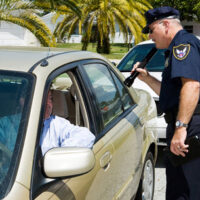Your Rights Around a Field Sobriety Test

If you go through a DUI checkpoint or you are stopped on suspicion of drunk driving, you might be given a field sobriety test (or FST) by a law enforcement officer. Field sobriety tests are used to determine whether a driver is intoxicated, but there are many limitations to these types of tests. Although several types of FSTs have been standardized, there is a significant amount of room for error, and motorists can be arrested as a result of a field sobriety test even if they are not actually driving while intoxicated or under the influence of alcohol or drugs. What do you need to know about your rights when it comes to field sobriety tests in the Denver area and throughout Colorado? Our Denver DUI defense lawyer can tell you more, and we can speak with you today about your options if you were arrested for a DWAI, DUI, or another alcohol-related offense.
Understand the Types of Field Sobriety Tests
In order to have an understanding of your rights concerning field sobriety tests, it is essential to have an understanding of the different types of tests. The National Highway Traffic Safety Administration (NHTSA) identifies the following as the three standardized types of FSTs, and they can be used by law enforcement officers in Colorado:
- Horizontal gaze nystagmus (HGN), through which an officer determines how well a person can follow a moving object with their eyes;
- Walk and turn (WAT), which measures how well a person can walk a straight line for nine steps and turn, as the name of the test suggests; and
- One leg stand (OLS), which determines how well a person can balance on one leg and count.
Know Your Rights: You Do Not Have to Submit to a Field Sobriety Test
It is critical to know that Colorado’s express consent law (also known as implied consent law in other states) does not apply to field sobriety tests. You have not already given consent to a field sobriety test when you get behind the wheel, and you can decline a field sobriety test.
You May Have Multiple Options for Challenging the Results of a Field Sobriety Test
As we have noted, field sobriety tests are notoriously unreliable. Data suggests that field sobriety tests are only accurate between 65 percent and 77 percent of the time, according to data from the US Department of Justice Office of Justice Programs (OJP). Indeed, as the OJP emphasizes, in a best-case scenario, a field sobriety test is only accurate 77 percent of the time, and that number refers to the HGN tests. Other types of field sobriety tests administered tend to be even less accurate due to the law enforcement officer’s subjectivity and to actions by people being tested that do not necessarily indicate intoxication. Accordingly, you may have multiple options for challenging the results of a field sobriety test based on the specific details of your case.
Contact Our Denver DUI Defense Lawyer
If you were arrested for a DWAI or DUI and your case involves a field sobriety test, it is important to seek legal help to find out more about your options for defending against drunk driving charges and getting any charges against you dropped. The experienced Denver DUI defense attorney at DeChant Law can talk with you today about the details of your case and your options.
Sources:
nhtsa.gov/sites/nhtsa.gov/files/documents/sfst_ig_refresher_manual.pdf
ojp.gov/ncjrs/virtual-library/abstracts/standardized-field-sobriety-testing
